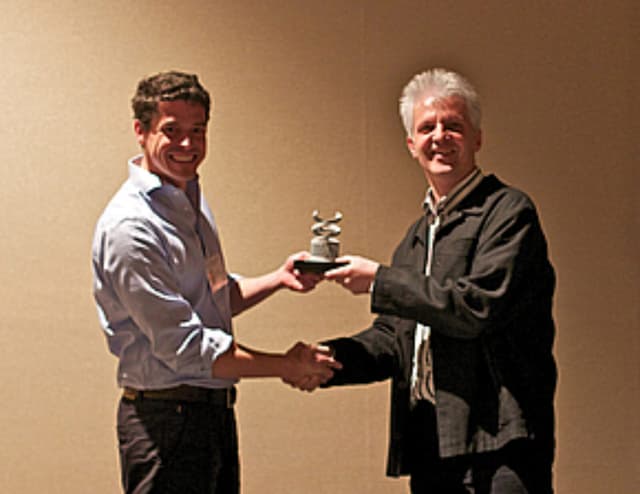Cees Dekker Receives the 2012 ISNCE Nanoscience Prize

(Originally published by Delft University of Technology)
April 19, 2012

Previous prize winners of the ISNSCE NanoScience Prize in the past are well-known scientists in the field, such as George Whitesides, Paul Alivisatos, James Fraser Stoddart and Nadrian Seeman. Whitesides, who also received the prestigious National Medal of Science, is a pioneer in microfluidics and known for his insights in how molecules order on a surface. The other previous winners did breakthrough science in DNA nanotechnology and the synthesis of nanostructures. Dekker is the first physicist to receive the award. Said Dekker, “the previous winners form a fantastic line-up of pioneers in nanoscience. I regard it a great honor to receive this award.”
The award was presented to Dekker at the Foundations of Nanoscience Conference, where Dekker also delivered a keynote lecture.
The ISNSCE is a scientific organization founded in 2004. Its purpose is to promote the study of the control of the arrangement of the atoms in matter, examine the principles that lead to such control, to develop tools and methods to increase such control, and to investigate the use of these principles for molecular computation, and for engineering on the finest possible scales.
The goals of the society are to unite fields of nanoscale computation with nanoscale science and engineering, increase the presence of the field on scientific horizon, provide an official scientific forum for recognizing the most notable contributions in the area, and help foster the careers of more junior associates, thereby ensuring the continuous existence, development and growth of the discipline.